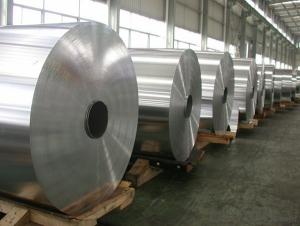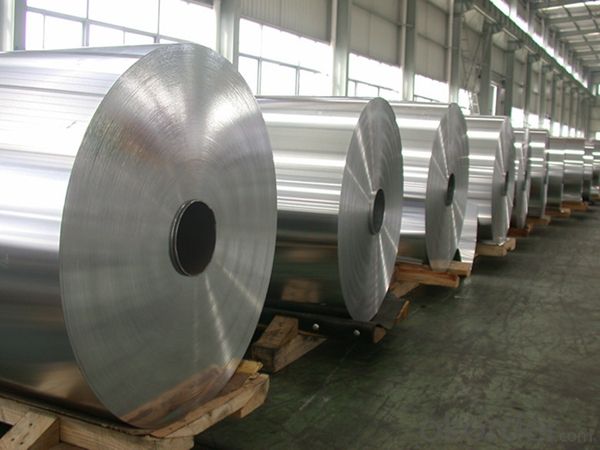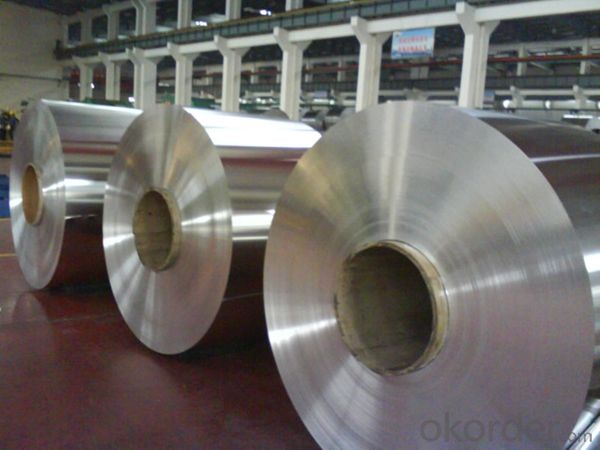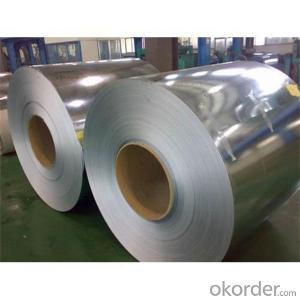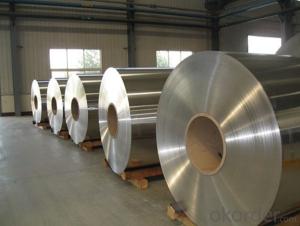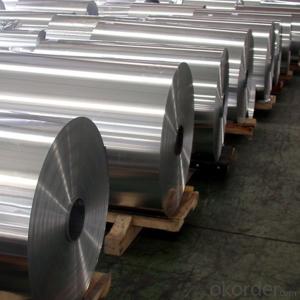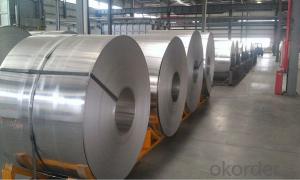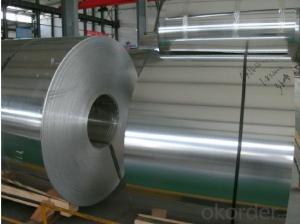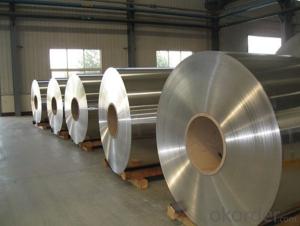Red Aluminum Coil Stock - Hot Rolled Aluminium Coil AA1060 for Building
- Loading Port:
- Shanghai
- Payment Terms:
- TT OR LC
- Min Order Qty:
- 5 m.t.
- Supply Capability:
- 10000 m.t./month
OKorder Service Pledge
OKorder Financial Service
You Might Also Like
Specification
1. Specification of Factory Supply Hot Rolled Aluminium Coil AA1060 for Building
characteristics | Application |
1) Super peeling strength | 1) Building exterior curtain walls |
2) Excellent surface flatness and smoothness | 2) Decoration and renovation additions for old buildings |
3) Superior weather, corrosion, pollutant resistance | 3) Decoration of interior walls, ceilings, bathrooms, kitchens and balconies |
4) Even coating, various colors | 4) Shop door decorations |
5) Fireproof, excellent heat and sound insulation | 5) Advertisement board display platforms and signboards |
6) Superior impact resistance | 6) Wallboards and ceilings for tunnels |
7) Lightweight and easy to process | 7) Industrial materials, materials for vehicles and boats |
2. Application of Factory Supply Hot Rolled Aluminium Coil AA1060 for Building
(1).Interior: wall cladding, ceilings, bathrooms, kitchens and balconies, shutters, doors...
(2).Exterior: wall cladding, facades, roofing, canopies, tunnels, column covers , renovations...
(3).Advertisement: display platforms, signboards, fascia, shop fronts...
3. Feature of Factory Supply Hot Rolled Aluminium Coil AA1060 for Building
• Our goods quality is top, the surface is smooth, and every steel coil
• No Joint, No Bends, no spots, no roller marks.
• MTC will be provided with goods, third part inspection is acceptable, for example, SGS, BV. Etc
Be free from Oil Stain, Dent, Inclusion, Scratches, Stain, Oxide Dicoloration, Breaks, Corrosion, Roll Marks, Dirt Streaks and other defect which will interfere with use
4. Certificate:
SGS and ROHS(if client request, paid by client), MTC(plant provided), Certificate of Origin(FORM A, FORM E, CO), Bureau Veritas and SGS (if client request, paid by client), CIQS certificate
5. Image of Factory Supply Hot Rolled Aluminium Coil AA1060 for Building
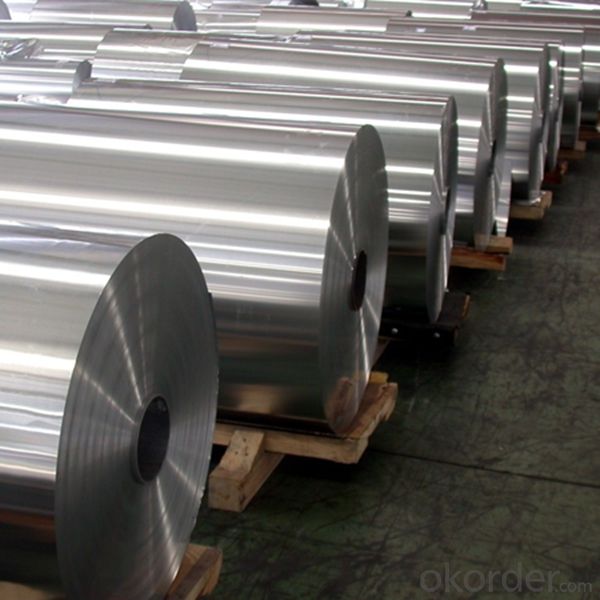
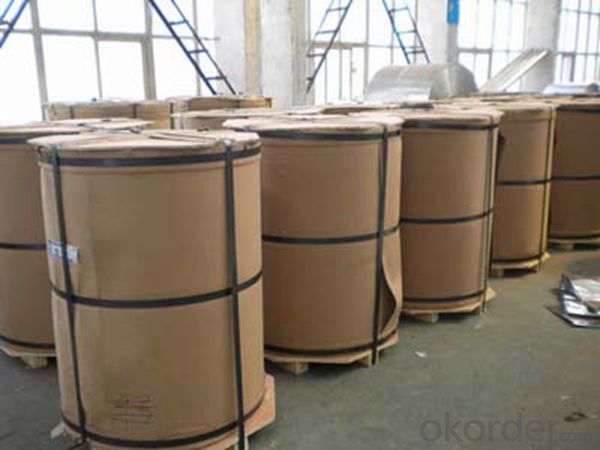
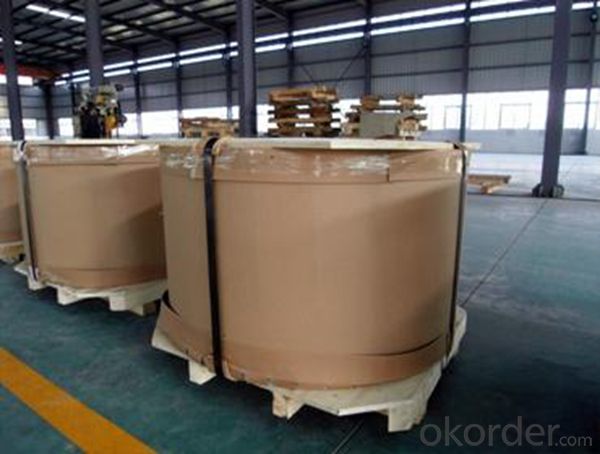
6. Package and shipping of Factory Supply Hot Rolled Aluminium Coil AA1060 for Building
eye to wall
eye to the wall
with wood pallet (wooded case also available)
7. FAQ
1) What is the delivery time?
Dpends on actual order, around 20 to 35 days
2)What is the QC system:
We have QC staff of 20 persons and advanced equipment, each production is with MTC traced from Aluminum ingot lot.
3) What market do you mainly sell to?
Australia, America, Asia, Middle East, Western Europe, Africa etc
- Q: What are the potential applications of coil-brushed aluminum coils?
- Coil-brushed aluminum coils have a wide range of potential applications due to their unique properties. Here are some of the potential applications: 1. Architectural: Coil-brushed aluminum coils can be used in architectural projects such as building facades, roofing, cladding, and decorative elements. The brushed finish adds a sophisticated and modern look to the structures. 2. Interior Design: These coils can be utilized in interior design applications like wall paneling, ceiling tiles, partition screens, and decorative accents. The brushed texture provides a sleek and stylish appearance, making them suitable for residential, commercial, and hospitality settings. 3. Furniture: Coil-brushed aluminum coils can be incorporated into furniture designs, including tables, chairs, shelves, and cabinets. The brushed finish adds a contemporary touch to the furniture pieces, making them suitable for modern and minimalist styles. 4. Automotive: The lightweight and corrosion-resistant nature of aluminum make it an ideal material for automotive applications. Coil-brushed aluminum can be used in the manufacturing of interior trim, dashboards, door panels, and other decorative components in cars, trucks, and motorcycles. 5. Electronics: With its excellent conductivity and heat dissipation properties, coil-brushed aluminum can be used in the production of electronic devices such as smartphones, laptops, and tablets. The brushed finish adds a premium feel to these products. 6. Signage and Branding: Coil-brushed aluminum coils can be used in the manufacturing of signage and branding elements. The brushed texture enhances the visibility and aesthetics of the signs, making them stand out and convey a sense of quality and professionalism. 7. Kitchenware and Appliances: The durability, heat resistance, and easy cleaning properties of aluminum make it a popular choice for kitchenware and appliances. Coil-brushed aluminum can be used to produce cookware, bakeware, kitchen utensils, and appliance panels, providing a sleek and modern look to these products. 8. Packaging and Labeling: Coil-brushed aluminum coils can be utilized in the production of packaging and labeling materials. The brushed finish adds an elegant touch to product packaging, making it visually appealing and attractive to consumers. Overall, the potential applications of coil-brushed aluminum coils are vast, ranging from architectural and interior design projects to automotive, electronics, kitchenware, signage, and packaging industries. Their unique properties make them a versatile and desirable material for various applications.
- Q: Can aluminum coils be welded or joined?
- Yes, aluminum coils can be welded or joined. Aluminum is a highly weldable metal and can be easily joined using various welding techniques. The most common methods of welding aluminum coils include TIG (Tungsten Inert Gas) welding, MIG (Metal Inert Gas) welding, and resistance welding. TIG welding is a precise and versatile technique that uses a non-consumable tungsten electrode to create the arc. It is widely used for welding aluminum coils as it provides excellent control over the welding process, ensuring high-quality and strong welds. MIG welding, on the other hand, uses a consumable wire electrode and a shielding gas to protect the weld zone from atmospheric contamination. This method is faster than TIG welding and is often preferred for larger production runs. Resistance welding is another common method used to join aluminum coils. It involves passing an electric current through the overlapping metal surfaces to create heat and pressure, resulting in a strong weld joint. This technique is often used in industries where high-speed production is required. It is worth noting that welding aluminum coils requires specific techniques and considerations due to the metal's unique properties. Aluminum has a lower melting point and higher thermal conductivity compared to other metals, which can make it more challenging to weld. Proper cleaning, preheating, and selection of appropriate filler materials are crucial for achieving successful welds. In summary, aluminum coils can be welded or joined using various techniques such as TIG welding, MIG welding, and resistance welding. However, it is essential to follow proper procedures and consider the specific properties of aluminum to ensure strong and reliable welds.
- Q: This question asks if aluminum coils are susceptible to rusting.
- <p>Aluminum coil does not rust in the traditional sense. Instead, it forms a thin, protective layer of aluminum oxide when exposed to air, which prevents further corrosion. This oxide layer is different from rust, which is iron oxide. While aluminum can tarnish or corrode under certain conditions, such as exposure to certain chemicals or in extreme environments, it does not rust like iron or steel. Proper storage and handling can help maintain the integrity of aluminum coils and prevent unwanted reactions.</p>
- Q: What are the different thickness options for aluminum coils?
- Aluminum coils are available in a wide range of thickness options to cater to various industrial and commercial applications. The thickness of aluminum coils is typically measured in gauge or millimeters (mm). Common thickness options for aluminum coils include: 1. Thin Gauge: Thin gauge aluminum coils are usually between 0.15 mm to 0.4 mm thick. These coils are commonly used for applications that require lightweight and flexible materials, such as packaging, electrical wiring, and insulation. 2. Standard Gauge: Standard gauge aluminum coils range from 0.4 mm to 2.5 mm in thickness. These coils are widely used in industries like construction, automotive, and aerospace for applications such as roofing, cladding, heat exchangers, and structural components. 3. Thick Gauge: Thick gauge aluminum coils are typically above 2.5 mm in thickness. These coils are predominantly used in heavy-duty applications that require high strength, durability, and load-bearing capacity. Examples include shipbuilding, industrial machinery, and large-scale structural frameworks. It's important to note that the availability of specific thickness options may vary depending on the manufacturer and the intended application. Custom thicknesses can also be manufactured to meet specific project requirements.
- Q: How do aluminum coils contribute to reduced maintenance costs?
- Primarily due to their exceptional durability and resistance to corrosion, aluminum coils contribute to reduced maintenance costs. Specifically designed to withstand harsh environmental conditions, including exposure to moisture, salt, and chemicals, aluminum coils differ from other metals like copper. This resistance to corrosion ensures that the coils remain intact and functional for extended periods, minimizing the need for frequent repairs or replacement. Moreover, aluminum coils are lightweight, making them easier to handle and install, thus reducing labor costs associated with maintenance activities. Additionally, their high thermal conductivity enables efficient heat transfer, resulting in increased energy efficiency and lower utility bills. Overall, the utilization of aluminum coils in HVAC systems assists in reducing maintenance expenses and extending the lifespan of the equipment, making them a cost-effective choice for both residential and commercial applications.
- Q: How are aluminum coils tested for surface adhesion?
- Aluminum coils are tested for surface adhesion through various methods to ensure the quality and performance of the material. One common method is the tape test, where a piece of adhesive tape is applied firmly to the surface of the coil and then quickly removed. The adhesion is evaluated by assessing the amount of coating or paint that comes off with the tape. If excessive coating is removed, it indicates poor surface adhesion. Another method involves using a cross-cut or knife test, where a grid pattern is cut into the surface of the coil using a sharp blade. The grid is then covered with an adhesive tape and quickly removed. The adhesion is evaluated by examining the amount of coating or paint that is removed from the cut lines. If there is minimal or no coating removal, it indicates good surface adhesion. In addition, the pull-off adhesion test is often conducted using specialized equipment. This test involves attaching a device to the surface of the coil and applying a gradually increasing force until the coating or paint starts to detach. The force required to cause the detachment is measured, and it provides a quantitative measure of the surface adhesion strength. Overall, these testing methods help manufacturers assess the surface adhesion of aluminum coils and ensure that they meet the required standards for various applications, such as in the automotive, aerospace, or construction industries.
- Q: Can aluminum coils be recycled multiple times without losing their properties?
- Yes, aluminum coils can be recycled multiple times without losing their properties. Aluminum is a highly recyclable material and can be melted down and reused indefinitely without any significant degradation in its properties. This makes aluminum coils a sustainable and environmentally friendly choice for various applications.
- Q: Some properties of aluminum are summarized in the following list.normal melting point 658°C heat of fusion 3.95 kJ/g normal boiling point 2467°C heat of vaporization 10.52 kJ/g specific heat of the solid 0.902 J/g°C Calculate the quantity of energy required to heat 1.58 mol of aluminum from 33°C to its normal melting point? In KJCalculate the quantity of energy required to melt 1.02 mol of aluminum at 658°C? In KJCalculate the amount of energy required to vaporize 1.02 mol of aluminum at 2467°C? In KJ
- Calculate the quantity of energy required to heat 1.58 mol of aluminum from 33°C to its normal melting point in KJ- 1.58 mol x 26.98 g/mol x 0.902 J/g°C x (658 - 33)°C x 1 kJ/1000 J = 24.03 kJ Calculate the quantity of energy required to melt 1.02 mol of aluminum at 658°C In KJ- 1.02 mol x 26.98 g/mol x 3.95 kJ/g = 108.7 kJ Calculate the amount of energy required to vaporize 1.02 mol of aluminum at 2467°C In KJ- 1.02 mol x 26.98 g/mol x 10.52 kJ/g = 289.5 kJ
- Q: This question asks for a comparison of the benefits and drawbacks of utilizing aluminum coils in food storage.
- <p>Advantages of using aluminum coils for storing food include their excellent heat conductivity, which allows for even heating and cooling, making them ideal for temperature-sensitive food items. They are also lightweight, durable, and resistant to corrosion, which enhances their longevity. Additionally, aluminum coils are recyclable, contributing to environmental sustainability. Disadvantages include potential health concerns due to the leaching of aluminum into food, especially in acidic environments. There's also the risk of denting or scratching the surface, which can compromise the integrity of the coil and lead to contamination. Moreover, aluminum coils may not be suitable for all types of food storage, particularly those requiring airtight or vacuum sealing.</p>
- Q: Is it safe to use aluminum coil for food storage?
- <p>Using aluminum coil for storing food is not recommended. Aluminum can react with acidic or alkaline foods, potentially leaching aluminum into the food. This can be harmful to health, especially over time. Instead, opt for food-safe materials like glass, stainless steel, or BPA-free plastics for food storage to ensure safety and prevent contamination.</p>
Send your message to us
Red Aluminum Coil Stock - Hot Rolled Aluminium Coil AA1060 for Building
- Loading Port:
- Shanghai
- Payment Terms:
- TT OR LC
- Min Order Qty:
- 5 m.t.
- Supply Capability:
- 10000 m.t./month
OKorder Service Pledge
OKorder Financial Service
Similar products
Hot products
Hot Searches
Related keywords
